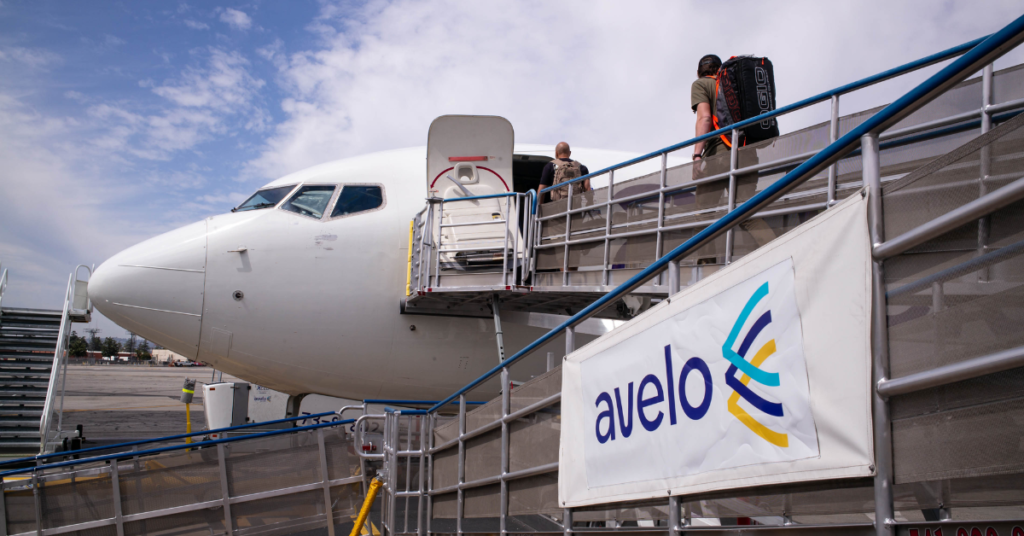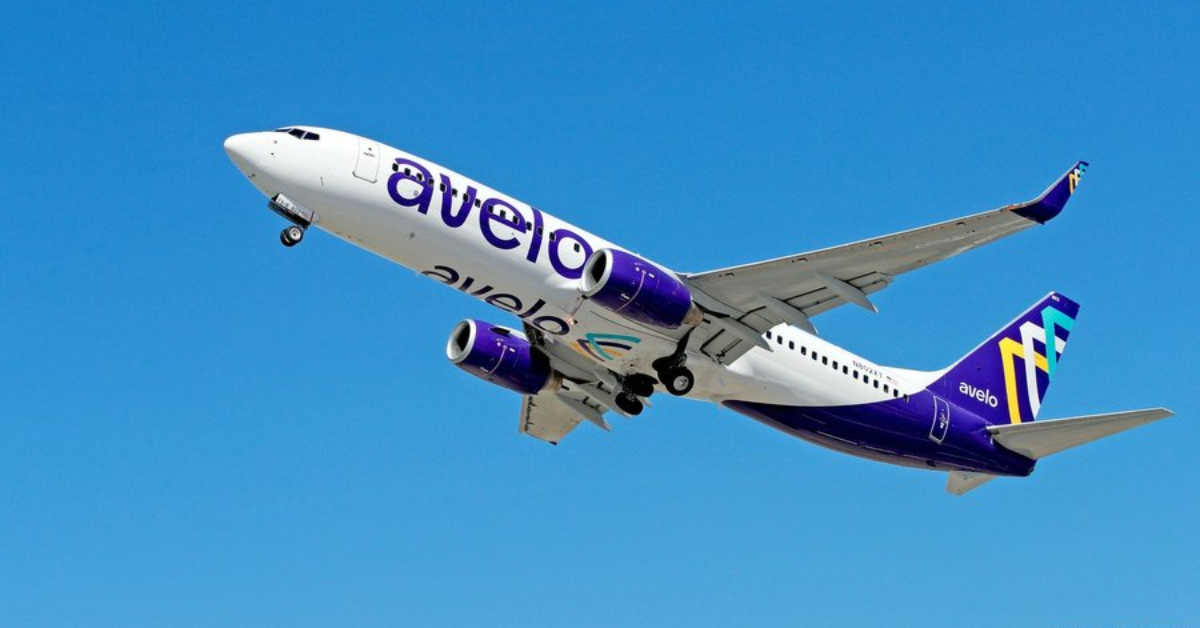Texas-based airline has entered into a long-term partnership with the U.S. Department of Homeland Security’s (DHS) Immigration and Customs Enforcement (ICE) agency. The agreement, which will start in May, involves the airline assisting in deportation efforts by operating deportation flights, both domestic and international. This move comes at a time when the U.S. government is intensifying its efforts to manage and remove illegal immigrants.
Avelo Airlines, headquartered in Houston, Texas, announced that it will begin departure flights from Mesa Gateway Airport (AZA) in Arizona. The airline plans to use three of its Boeing 737-800 planes to carry out these flights starting on May 12, 2025. According to a statement from Avelo Airlines shared with Fox News Digital, the flights will be part of a larger strategy to support the DHS’s ongoing efforts to enforce immigration laws.
Andrew Levy, the founder and CEO of Avelo Airlines, commented on the partnership, acknowledging the topic’s sensitivity. He said, “We realize this is a sensitive and complicated topic. After significant deliberations, we determined this charter flying will provide us with the stability to continue expanding our core scheduled passenger service and keep our more than 1,100 crewmembers employed for years to come.”
The airline’s involvement in deportation flights is seen as a strategic move to help the company maintain a stable workforce while contributing to national immigration enforcement. Avelo Airlines will also establish a new base at AZA, where the company will station pilots, flight attendants, and aircraft technicians to manage the deportation flights.
Additionally, Avelo is expected to begin hiring locally for these roles. Current employees will have the first opportunity to transfer to the new AZA base. The airline has posted a job listing for flight attendants who will be assigned to the deportation flights. The listing specifies that candidates should be “energetic, highly motivated” individuals ready to support the deportation efforts. The pay for this role starts at $28 per hour.
In recent months, the Trump administration has focused on significantly increasing deportation efforts. According to a report by the New York Post, more than 100,000 illegal immigrants have been deported in just the first 11 weeks since President Trump’s return to office. Immigration and Border Patrol officials have made around 113,000 arrests and carried out “north of” 100,000 deportations, the report adds.
ICE sources have praised the efforts, stating that the president is fulfilling the promises made during his election campaign. One ICE source noted, “He’s doing what he was voted in to do. Point blank!” Meanwhile, Border Czar Tom Homan has pledged to continue the deportation of criminal illegal immigrants, especially those who pose a national security threat. However, details about how many of the deported individuals had committed crimes during their time in the U.S. are still unclear.

The increase in deportations comes alongside a sharp drop in the number of illegal border crossings. The most recent statistics from U.S. Customs and Border Protection (CBP) reveal that March saw the lowest number of illegal border crossings ever recorded in the southwest border, with only 7,180 encounters.
Despite the administration’s success in reducing border crossings, the use of deportation flights has attracted legal challenges. A federal judge has raised concerns that the deportation flights may have violated a court order that temporarily halted some deportations.
U.S. District Judge James Boasberg issued an emergency order temporarily blocking deportations and requiring that any individuals removed under a 1798 law be “immediately” returned to U.S. soil. This order has led to debates over whether the Trump administration knowingly violated the legal ruling.
The 1798 Alien Enemies Act, which the administration has used to justify some deportations, has been invoked only three times in U.S. history—during the War of 1812 and the two World Wars. The Trump administration’s use of the law to deport alleged gang members, including members of the Tren de Aragua gang, to El Salvador has sparked controversy and raised questions about the legality of such actions.
As the legal case continues, the Trump administration defends its use of the Alien Enemies Act, arguing that it is necessary to expel dangerous individuals, particularly those with criminal backgrounds or ties to criminal organizations. The case is still ongoing, and both DHS and ICE officials are closely monitoring the situation.
Avelo Airlines’ partnership with ICE marks a significant step in the Trump administration’s broader effort to strengthen immigration enforcement and deportation policies. While the deal has received praise for creating stability for the airline’s workforce, it also raises complex legal and ethical questions regarding the deportation process and the use of federal laws like the Alien Enemies Act.
Disclaimer: This article has been meticulously fact-checked by our team to ensure accuracy and uphold transparency. We strive to deliver trustworthy and dependable content to our readers.








